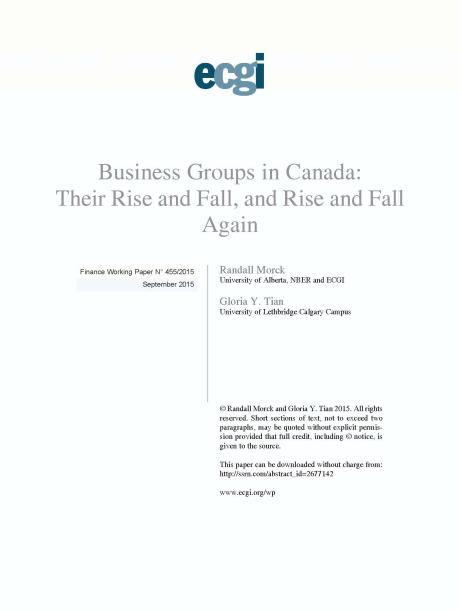
Business Groups in Canada: Their Rise and Fall, and Rise and Fall Again
Abstract
Family-controlled pyramidal business groups were important in Canada early in the 20th century, amid rapid catch-up industrialization, but largely gave way to widely held freestanding firms by mid-century. In the 1970s and early 1980s ? an era of high inflation, financial reversal, unprecedented state intervention, and explicit emulation of continental European institutions ? pyramidal groups abruptly regained prominence. The largest of these were politically well-connected and highly leveraged. The two largest collapsed in the early 1990s in a recession characterized by very high real interest rates. The smaller groups that survived were more vertically integrated and less diversified at the time. Widely held freestanding firms and Anglo-Saxon concepts of the role of the state soon regained predominance.




